 Cascia, the city of St. Rita, whose feast day is today, is a beautiful mountainous place in the region of Umbria in Italy. Its natural beauty obscures a violent past, which St. Rita experienced in her own life through the violent deaths of her husband and sons. Violence continues in our world in many different ways. One way is the violence that is done through lack of care of our common home, all of creation, including human beings. Pope Francis tells us in Laudato Si’: “Sin is manifest in all its destructive power in wars, the various forms of violence and abuse, the abandonment of the most vulnerable, and attacks on nature” (66). St. Rita forgave those who killed her husband and sons. She worked for reconciliation. Today, in Cascia and shrines in honor of her throughout the world, the work of reconciliation is a hallmark. We need to ask ourselves how we are reconciling the sins that Pope Francis identifies. The Pope reminds us that “everything is related, and we human beings are united as brothers and sisters on a wonderful pilgrimage, woven together by the love God has for each of his creatures and which also unites us in fond affection with brother sun, sister moon, brother river and mother earth” (Laudato Si’, 92). May the charity of Christ urge us on! In God, the Infinite Love, Fr. Frank
0 Comments
As a Catholic of African descent, I am honored and privileged by this unique opportunity to discuss the beautifully diverse Catholic Church throughout the world, the significant contributions that those of every ethnic background have made in building up the Body of Christ, and how we can arrive at racial healing and reconciliation. The Catholic Church is made up of the faithful of every ethnic background, the young and old, both male and female, and several distinct cultural settings. In other words, we Catholics come from every realm of the human experience, and are united in our baptismal fidelity. As a black Catholic, my religious heritage spans all the way back to biblical times, including when Saint Philip the Apostle brought the Good News of Jesus Christ down into Ethiopia (see Acts:8:26-40). Both African and African-American saints, including those in this extensive list from Catholic Online, have enriched the Church for nearly two millennia. Likewise, the modern era features some black candidates for sainthood, including those appearing in the United States Conference of Catholic Bishops’ webpage titled “On the Path to Sainthood: Leaders of African Descent.” I encourage everyone of good will to read through the biographies of the figures listed in both of those sites, in order to gain a greater appreciation for the manifold ways that they have built up the Body of Christ, per the Apostle Paul’s Letter to the Romans: “For as in one body we have many parts, and all the parts do not have the same function, so we, though many, are one body in Christ, and individually parts of one another” (Romans 12:4-5). The calendar year 2020 brought numerous challenges to those of every faith, both in the United States and around the globe, as the world confronted the COVID-19 pandemic and matters of racial discord were brought to the fore in the United States. I think often of how far we have come as a nation in terms of fostering peace and harmony between people of every ethnic background here in the United States. For instance, my father, Charles McClain, Sr., who was born in Durham, North Carolina, in 1936, and lived under segregation well into his early adulthood, probably did not fathom during his youth that he would one day see three of his sons (my brother Eric, my brother Jaris, and me) go on to marry white women. We can attest that this is, in a way, a fulfillment of Rev. Dr. Martin Luther King, Jr.’s, affirmation from his “I Have a Dream” speech of August 28, 1963, declaring that “I have a dream that that my four little children will one day live in a nation where they will not be judged by the color of their skin, but by the content of their character,” and that “one day… little black boys and black girls will be able to join hands with little white boys and white girls as sisters and brothers.” Yet, as with many quests for justice, this is easier said than done. However, since we profess our faith in Jesus Christ, we have inspiration from the Gospel, since Jesus commands (not suggests) to “love your neighbor as yourself” (Mark 12:31), and to “do to others as you would have them do to you” (Luke 6:31). To facilitate healing and reconciliation, we must have best intentions and give others the benefit of the doubt when they are striving to learn more about their brethren of other ethnic backgrounds and cultures. As such, every endeavor in this regard should be marked by true charity and prayer prior to the initiation of any sociopolitical engagement, all of which must be informed by the Gospel and its imperatives if we are to call ourselves disciples of Jesus Christ. For this reason, I urge the faithful to read books on racial reconciliation and healing from a Christ-centered perspective. A couple of books that come to mind are Joseph Pearce’s Race with the Devil: My Journey from Racial Hatred to Rational Love (TAN Books, 2013) and the late Fr. Ubald Rugirangoga’s Forgiveness Makes You Free: A Dramatic Story of Healing and Reconciliation from the Heart of Rwanda (Ave Maria Press, 2019). Of note, Fr. Ubald passed away from complications related to COVID-19 on January 7. You can read more about his life and ministry in this tribute provided by Ave Maria Press. I love teaching my children and students about being an African-American Catholic, just as I enjoy learning about my wife’s Irish-American Catholic heritage and many other avenues of cultural diversity within the Church. Let us draw each other to embrace the sacramental life and the Church’s timeless moral standards in order to reinforce the Body of Christ. May God bless you. “The Advocate, the Holy Spirit…will teach you everything.” -John 14:26 After two years of dedicated study of theology, I received my Master’s degree. This has always seemed a bit odd to me, because I often feel I still have so much to learn. This seems like the case for Jesus’ followers as well. After 3 years of discipleship, they didn’t know “everything.” Though they could be considered the “masters” of Christian life–having spent three years walking alongside Jesus—Christ tells them they still need the Holy Spirit in order to learn “everything.” He was explaining to them a fundamental reality of the Christian life: it is a life-long process of learning. This reality is sometimes daunting, but more often it is comforting. The men that spent three years at the feet of Christ, who witnessed His miracles, heard His parables, and encountered Him after His resurrection, didn’t have it all together. They were not perfect at discipleship and they still needed God, who would now be revealed to them in the indwelling of the Holy Spirit. Rather than spending physical time with Christ, they would experience something even greater: God dwelling within them. This intimate and powerful presence of God is something we can experience today. We receive the indwelling presence of the Holy Spirit on the day of our baptism and physically receive Christ Himself every time we partake of the Eucharist. Furthermore, Christ tells us in this Sunday’s Gospel that He and the Father will dwell within those who keep His word. This comforts me because I have never heard Christ’s voice, seen His face, or shared His food. Though I am generations and millennia removed from Him, He has sent the Holy Spirit to teach me “everything”—what it means to follow Christ and live the Gospel today. Much like the disciples, I still have much to learn. Though I have grown up knowing about Christ and His teachings, though I have figuratively sat at His feet for more than three years, I still need the Holy Spirit to teach and remind me what it means to be a follower of Christ each day. And in order to cultivate the indwelling of the Holy Spirit, I must continue to keep Christ’s word. This is so much more than the study of theology. As Pope Francis said in a 2015 homily, "We can study the whole history of salvation, we can study the whole of Theology, but without the Spirit we cannot understand. It is the Spirit that makes us realize the truth or – in the words of Our Lord – it is the Spirit that makes us know the voice of Jesus." Learning everything, therefore, means knowing and discerning the voice of Jesus. A life of keeping Christ’s word looks different according to your vocation or status in life, but overall, some things that help us recognize Christ’s voice include an active sacramental life, daily prayer, acts of charity, reading Scripture, and living according to Church teaching. In the nitty gritty of every day, this could mean keeping your cool while driving in rush hour traffic, taking a meal to a family with a newborn, participating in the Sacrament of Reconciliation regularly, giving your spouse the benefit of the doubt, going to Mass each Sunday, or taking a deep breath when your child throws his food on the ground for the third time that day. It could mean reading the daily readings at the breakfast table, praying evening prayer with your roommates, starting a rosary on your commute, participating in a weekly Bible study. In short, keeping Christ’s word is a lifelong, daily decision to do things that bring you closer to Him and encourage you to hear His voice. As we prepare to celebrate Pentecost in a few weeks, let us call upon the Holy Spirit to be our Advocate and Teacher. May we have the humility to call upon Him daily as we pursue this lifelong life of discipleship in order to truly hear the voice of Jesus that says, “Come, follow me.” As I have gotten older, my favorite part about Lent has become the fact that we have the privilege of willingly walking into the desert - into these 40 days - with our Lord. I think there are a lot of times in our lives when we suddenly find ourselves in the desert - desperate for water, nourishment, or companionship. It is in the desert where we not only grow in intimacy with the Lord, but are also able to be strengthened through real repentance. What is true for us in the deserts of our lives is the same thing that was true for the Prodigal Son in this Sunday’s Gospel: we receive the promise of a Father who receives our repentance with mercy. The story of the Prodigal Son is an important one for us to reflect upon as we continue on our Lenten journeys - it is through repentance that the very son who squandered his inheritance is welcomed back with open arms into the mercy of his father. And the story doesn’t end there: not only does the father embrace and welcome his son back, he rejoices and celebrates his return for those around him to see. It is through our repentance that we experience the mercy of God; it is through our repentance that we receive the promise of the desert of these 40 days. This is so beautifully echoed in all the readings that the Church gives us during this season: God the Father rejoices when we are brought back to life again (Luke 15:32). We as Catholics have the unique privilege of receiving this mercy every time we hear the words of the priest absolving us in the Sacrament of Reconciliation. Our moments of feeling desperate in the desert can be alleviated by honest repentance. After one particularly frustrating time in my life, I remember feeling like the Prodigal Son: convicted that I needed to repent and return to God, but also feeling shame over all the ways that I had squandered what the Lord had given me. And in that moment a priest reminded me that confession is always a place of victory. Like the prodigal son who acknowledged his failures and was welcomed back with mercy and celebration, we too find an outpouring of mercy and grace when we reconcile ourselves to God. As we journey towards Calvary, we do so knowing that our repentance leads to an encounter of mercy and ultimately to victory. Questions for Reflection: What are some moments in your life when you’ve encountered the mercy of God and others? How did these moments affect you? For more resources to accompany you in your Lenten journey, please click here. The word vocation comes from the Latin “vocare,” which means to be called. Like any call, we are offered a choice to answer or ignore it. Assisting others in discerning their apostolic vocation in life was an important aspect of the ministry of the Catholic Apostolate Center’s patron, St. Vincent Pallotti. Pallotti had a great belief in apostleship and what the Church today refers to as the “universal call to holiness.” Many years before the Second Vatican Council formally addressed the role of the laity in the Church, Pallotti understood deeply that each member of the Body of Christ plays a significant role in evangelization. This included the active participation of the laity in collaboration with priests and religious. As the Union of the Catholic Apostolate stated in a 2012 reflection, “Saint Vincent Pallotti was the first to show that the laity on their part share different talents and vocations, possess hidden treasures, and should be employed in the work of evangelization, of edification and of sanctification.” All of this work comprises our vocation, and is what I’m referring to when I speak of our vocation with a little “v.” Before we can begin to think about whether God is calling us to religious life, marriage, or the celibate single life (known as our Vocations with a capital “v”), we must first look to live out the calling he gives all of us: holiness. I was raised outside of the Church. As a result, I wasn’t exposed to our beautiful faith (outside of my baptism) until high school. It wasn’t until three years into my high school career that I began to see religion, which had forever been just a class to me, as being something worth pursuing. Yet in high school, I more deeply came to understand Jesus’ words in Mark 2:17, “It is not those who are healthy who need a physician, but those who are sick; I did not come to call the righteous, but sinners." A life of apostleship, which will lead to the better discernment of our Vocation, is not one of perfection, but of accompaniment and relationship building. We accompany others as they live out their vocation. Similarly, we are accompanied, which helps us keep going when we fall. Our vocation is not something that we choose when to live out, but rather it is an essential and fundamental part of our lives as Christians. As baptized members of the faithful, we are called to live out our baptismal offices of priest, prophet, and king. To live out this call to holiness we must begin with prayer. Prayer, as St. Vincent Pallotti said, “consists in directing all one’s thoughts, words, and actions on God.” In fact, we should pray so much that we “pray without ceasing.” That means that we are living lives that are so full of God, so full of doing his will, that all of our actions, words, and thoughts become a prayer. It can be helpful to remember that prayer is a dialogue. Sometimes we talk and other times we are silent, waiting to hear the voice of God in whichever ways he decides to speak to us. Secondly, we live out our vocations of holiness by living a life of doing good and avoiding evil. This comes from practicing charity with our neighbors and with ourselves and from opening our hearts to those around us who Pope Francis would say are “at the margins.” Through the living out of our vocation, we help others to encounter Christ. This encounter is at the heart of our faith. As Pope Benedict XVI said, “Being Christian is not the result of an ethical choice or a lofty idea, but the encounter with an event, a person, which gives life a new horizon and a decisive direction.” Lastly, we must take part in the sacraments. God’s plan for our salvation is rooted in Christ, whose grace is poured out in all of the sacraments. We should receive the Eucharist, spend time in Adoration, and frequently receive his mercy in the Sacrament of Reconciliation. We have been given all of the tools necessary for living lives of holiness. Those tools are strengthened when we receive the sacraments. So how does living out holiness, our lowercase vocation, pertain to our Vocation? I would argue that living out our Vocation, the call to religious life, priesthood, marriage, or the celibate single life, is one of the highest achievements of living out our vocation. A marriage cannot thrive, for example, without love, hope, mercy, prayer, and kindness. Neither would the ministry of a priest or religious sister. When we truly see the beauty of the promises of Christ: salvation, freedom, mercy, and redemption, we naturally want to know how best to achieve and share them with others. When we understand our call to holiness, and live out our vocations, uppercase and lowercase “v,” then we will help to become saints and build the Kingdom of God. For more resources on Vocational Discernment, please click here. “Prepare the way of the Lord, make straight his paths.” - Luke 3:1-6
REFLECTION Isaiah, whose words the evangelist Luke repeats in this week’s Gospel, prophesized a beautifully uncanny world. According to the prophet’s vision, no valley would be too deep, no mountain or hill too high, no road too long or path too rough for God’s salvation to reach. When we understand this word, we recognize that the saving presence of God has no limitation. God’s revelation arrives everywhere and to all life wherever it may be. No one life stands below or above another in that radically horizontal and unfamiliar world. God disregards human hierarchies, borders, and definitions. This season, we celebrate, meditate upon, and commit ourselves to our world’s greatest mystery—God incarnate and among us in Christ. Just like those along the Jordan who were invited by John the Baptist, we are invited to work for the world to which Christ, the salvation of God, arrived. The world in which we recognize God is with us and in each one of us. The world whose mystery we know capable to reveal itself anywhere and at any moment of the day. The world in which each person enters in community without prejudice or judgement but with mutual respect because we know every person to be equally chosen and beloved by God. FOCUS: Simple Living When I reflect on what prevents us from treating each other as kin and caring for each other and our common home, indifference appears as our greatest challenge. Today our politicians run campaigns based on hatred, prejudice, and the blatant disrespect of other cultures. Today so many of us deny scientific facts and disregard how our planet is suffering while we choose to continue to live numb and blind. Preoccupied primarily by our economic wellbeing, we tolerate injustice and accept apathy. Simple living this Advent must mean making space for God and others in our hearts by ridding our lives of the material goods which make us apathetic to and complicit in others’ suffering. PRAYER Just and compassionate God, whose incarnate word reveals itself to the tender and humble hearted, we pray for healing from the hurtful divisions that human hierarchies, borders, and definitions impose. Send your Spirit to renew a world divided and suffering. May bigotry shake in the path of Your love and prejudice fade in Your understanding presence. You, good guardian, know each one of us to be Your chosen and beloved. Bless and protect us as we work for reconciliation, peace, and justice. SERVICE SUGGESTION Opening our hearts to the arrival of God begins with an honest reflection on what in our lives encourages our cultural indifference to the suffering of our planet and its most marginalized peoples. This Advent, think of the moral demands of our faith and analyze whether your life habits or practices adequately demonstrate your commitment to God, all God’s people, and all God’s creation. What will you do to reflect more of the light of Christ today? **This reflection is from the 2018 Advent Reflection Guide, a collaborative effort between the Catholic Apostolate Center and Catholic Volunteer Network. To see the whole guide, please click here. Kevin Ruano, Franciscan Mission Service DC Service Corps Just down the street from where I study and serve in my home Archdiocese of Baltimore is our nation’s first Catholic cathedral, the Basilica of the Assumption, a visible testimony to the faith of the first Catholics in the newly formed United States of America. Yet every time I visit that holy place, I’m reminded by the physical space that for many years worship was segregated and black Catholics were required to sit in the balcony. Our family of faith in Baltimore included heroic individuals and communities like that of Mother Mary Lange (1794-1882), founder of the first African-American religious order, the Oblate Sisters of Providence, and the ministry of the Josephites. Their creative witness and ongoing presence in our communities today serve as a constant reminder that their mission lives on and has work yet to do. Since 1990, the Church in the United States, through the work of the National Black Catholic Clergy Caucus (NBCCC), has designated November as Black Catholic History Month. In a special way, the testimony of black Catholics reminds us all that as disciples of Christ, we live by memory. Celebrating this month reminds the Church just what it is that we are responsible for remembering. The act of remembering is a moral and spiritual task, part of the Church’s call to combat the sin of racism and seek new forms of reconciliation with sins of the past. Additionally, I’d like to suggest that memory lies at the heart of the Church’s celebration of word and sacrament, and briefly reflect here on why remembering our Church’s black history is so important for faithfully celebrating God’s word and sacrament each and every day. Those who attend or have attended a parish with a strong black Catholic presence will often recognize the power of the proclamation and preaching of God’s word. In particular, this tradition of preaching reminds Catholics that our Church preaches and teaches a truly liberatory word. Jesus Christ came to deliver God’s people from all forms of bondage and oppression, restoring us to freedom. Our biblical faith makes clear that participation in the Exodus event is intrinsically connected with our participation in the Passover. As Catholics, this means we are fed by God’s word and sacrament, particularly the Eucharist. At the Institution of the Eucharist at his Last Supper, Jesus instructed his Apostles to “Do this in memory of me” (Lk 22:19). The sacrifice of the Mass is an act of remembrance, called anamnesis, that re-presents Christ, making Jesus truly present here and now in the species of bread and wine. (I invite you to read Father Raniero Cantalamessa’s reflection.) That act of remembering is the basis for our act of thanksgiving (literally, “eucharist”). But it is impossible for us to give thanks for what we cannot remember. Does Christ’s presence at the altar then lead us onward to become more aware of Christ’s presence in our brothers and sisters who remain subject to forms of injustice and oppression elsewhere? To this end, our bishops offer resources on how to respond to sins of racism, an important way to publicly live out the interior transformation we receive in the Eucharist. While we live by memory, we do not simply live in the past; we are called to faithfully live out of our past. We live by memory as a sign of our hope that since God gave us a past, he promises us a future. Black Catholic History Month serves as a reminder that we have a history worth remembering and celebrating, so that we may go on living in the freedom to which Christ daily calls us. For more resources, we invite you to visit our Cultural Diversity Resources page and scroll down to the section on African American/Black Catholics. Click here to read Open Wide Our Hearts: The Enduring Call to Love, a pastoral letter from the USCCB against racism Questions for Reflection: How does remembering the past help us to live more faithfully and hopefully in the future? How have you seen our Church benefit from the diversity of its members? *This post was originally published on the Ad Infinitum Blog on November 2, 2017 For more information about Black Catholics in the US, check out the resources created by the National Black Catholic Congress in collaboration with the Catholic Apostolate Center: 5/9/2018 Everyday Holiness (Part 2): 10 Quotes from Pope Francis' Apostolic Exhortation to Help You Be Holy in Today's WorldRead NowOn April 9, the Solemnity of the Annunciation of the Lord, Pope Francis released his latest Apostolic Exhortation: Gaudete et Exsultate (Rejoice and Be Glad): On the Call to Holiness in Today’s World. This is the third Apostolic Exhortation of his papacy, following Evangelii Gaudium, the Apostolic Exhortation on the Proclamation of the Gospel in Today’s World and Amoris Laetitia, a post-synodal Apostolic Exhortation on Love in the Family. What was his goal? “To re-propose the call to holiness in a practical way for our own time, with all its risks, challenges and opportunities" (GE 2). Without delving too much into a theological or heady definition of holiness, Pope Francis invites us simply and straightforwardly to open ourselves to the specific and unique mission God has created us for. In this, he says, lies true joy and freedom. Our Holy Father takes us back to the Source of Holiness, Jesus Christ, and encourages us to look to the Beatitudes as guides for holiness. Below, I’ve compiled some of my favorite quotes and key take-aways from this approachable, yet profound, exhortation. 1.“A person’s perfection is measured not by the information or knowledge they possess, but by the depth of their charity.”-GE 37 It is tempting to leave the task of holiness to theologians, the clergy, or those who work for the institutional Church. Here, Pope Francis reminds us that holiness is not all about intellectual knowledge, our ability to quote the latest Church document, or the Catechism. While knowledge of the Faith certainly is important, our holiness is measured by the amount of love with which we infuse all of our actions. I can’t help but think of St. John of the Cross’s quote: “In the twilight of life, God will not judge us on our earthly possessions and human successes, but on how well we have loved. 2. “Jesus explained with great simplicity what it means to be holy when he gave us the Beatitudes (cf. Mt 5:3-12; Lk 6:20-23). The Beatitudes are like a Christian’s identity card…In the Beatitudes, we find a portrait of the Master, which we are called to reflect in our daily lives.” -GE 63 I love that Pope Francis ultimately leads us to Scripture and to Jesus Christ Himself as the model and teacher of holiness. It can get overwhelming trying to be holy and define holiness in our modern world. The Beatitudes, Pope Francis says, are like a “Christian’s identity card.” They point us directly to holiness and guide us along the way. Spending time reflecting on each of the Beatitudes will help us to better understand what it means and looks like to be holy. 3. “It is true that the primacy belongs to our relationship with God, but we cannot forget that the ultimate criterion on which our lives will be judged is what we have done for others. Prayer is most precious, for it nourishes a daily commitment to love. Our worship becomes pleasing to God when we devote ourselves to living generously, and allow God’s gift, granted in prayer, to be shown in our concern for our brothers and sisters.” –GE 104 Here, Pope Francis is reminding us that our prayer must lead to action. We cannot be holy in a vacuum, but are called to live out holiness amidst our brothers and sisters. Service to the world, as promoted by Catholic Social Teaching, is crucial if we are to be true followers of Christ. While our relationship with God always comes first, this relationship turns our gaze outward in order to foster and build relationships of love, service, and communion with our brothers and sisters. 4.“Far from being timid, morose, acerbic or melancholy, or putting on a dreary face, the saints are joyful and full of good humour. Though completely realistic, they radiate a positive and hopeful spirit.” -GE 122 Holiness leads to joy – this is the true fruit of our living a holy life. As Christians, we are called to exude the joy of the Resurrection and of the Gospel in the midst of a world plagued by sin, brokenness, and suffering. While holiness is joyful, is does not exist in an alternate reality, but embraces the truth of the world in which we live. Pope Francis says that this holiness is “realistic” and allows us to engage the world while still looking beyond it to the glory of eternal life. 5. “God is eternal newness. He impels us constantly to set out anew, to pass beyond what is familiar, to the fringes and beyond. He takes us to where humanity is most wounded... God is not afraid! He is fearless! He is always greater than our plans and schemes. Unafraid of the fringes, he himself became a fringe (cf. Phil 2:6-8; Jn 1:14). So if we dare to go to the fringes, we will find him there; indeed, he is already there.” –GE 135 The theme of going outside our comfort zone has been one Pope Francis has promoted since the beginning of his papacy. He calls us as Christians and as the Church to wake up, open our doors, and shake the dust off ourselves by imitating God who is “eternal newness.” Holiness, therefore, means being active, bold, and unafraid. It means meeting Christ in the fringes of society and finding him outside the confines of our Church walls. 6.“Let us allow the Lord to rouse us from our torpor, to free us from our inertia. Let us rethink our usual way of doing things; let us open our eyes and ears, and above all our hearts, so as not to be complacent about things as they are, but unsettled by the living and effective word of the risen Lord.” –GE 137 Here, Pope Francis continues to invite the Church to an examination of conscience. Are we doing things out of habit, because we’ve always done something a certain way, or are we open to the promptings and workings of the Holy Spirit as we approach our task of holiness and evangelization? The example and word of Jesus Christ should always “unsettle” us to some degree. We do not achieve perfect holiness at some point in our life and then rest on our haunches! The journey lasts throughout our lifetime. 7.“Are there moments when you place yourself quietly in the Lord’s presence, when you calmly spend time with him, when you bask in his gaze? Do you let his fire inflame your heart? Unless you let him warm you more and more with his love and tenderness, you will not catch fire. How will you then be able to set the hearts of others on fire by your words and witness? If, gazing on the face of Christ, you feel unable to let yourself be healed and transformed, then enter into the Lord’s heart, into his wounds, for that is the abode of divine mercy.” -GE 151 I love this passage from Gaudete et Exsultate. Pope Francis takes on a more reflective tone here and invites us to be prayerful along our journey to holiness. He gets to the heart of holiness by asking us some profound but unavoidable questions. Essentially, he’s asking if we have truly encountered Jesus Christ and his infinite love. This is fundamental to holiness, for our encounter with Christ’s love is what will carry us forward on our journey and sustain us. Take some time to pray with these questions and ask the Lord for a deeper encounter with his love. 8.“For this spiritual combat, we can count on the powerful weapons that the Lord has given us: faith-filled prayer, meditation on the word of God, the celebration of Mass, Eucharistic adoration, sacramental Reconciliation, works of charity, community life, missionary outreach. If we become careless, the false promises of evil will easily seduce us.” –GE 162 As with any journey, we will encounter setbacks and temptations as we strive for holiness. Pope Francis devotes a section of his exhortation to the reality of evil and our need to acknowledge it. Pursuing holiness also means engaging in spiritual combat. We not only face our own weaknesses or the sins of others, we also face an actual opponent: the devil. Here, Pope Francis encourages us to count on “the powerful weapons that the Lord has given us.” We are not alone as we face evil, but find our strength in the Church, the sacraments, our brothers and sisters, etc. 9. "Discernment is necessary not only at extraordinary times, when we need to resolve grave problems and make crucial decisions. It is a means of spiritual combat for helping us to follow the Lord more faithfully. We need it at all times, to help us recognize God’s timetable, lest we fail to heed the promptings of his grace and disregard his invitation to grow." –GE 169 Discernment is a way of life. It means inviting the Lord into our actions and decisions and asking for his guidance as we go about our day. Pope Francis reminds us that discernment is not reserved only for major life decisions such as a move, our vocation, a job opportunity, etc. Discernment should be engrained into our spiritual life and helps to ensure that we are living our lives according to God’s plan rather than our own. 10.“Mary is the saint among the saints, blessed above all others. She teaches us the way of holiness and she walks ever at our side. She does not let us remain fallen and at times she takes us into her arms without judging us. Our converse with her consoles, frees and sanctifies us.” -GE 176 We cannot pursue holiness without looking to the perfect model of human holiness: the Blessed Virgin Mary. Pope Francis concludes his exhortation by inviting us not only to look to Mary, but to go to her and build a relationship with her. She always guides us closer to her Son. Mary is a gift to us given by Christ himself to journey alongside us on the path to heaven, don’t forget to use her as a resource! **This is part two of a two-part series of quotes from Pope Francis’ latest Apostolic Exhortation: Gaudete et Exsultate. For more information and resources on Gaudete et Exsultate, please click here. Questions for Reflection: How does Pope Francis challenge your idea of holiness? Do you agree with the Holy Father’s definition? Where do you see holiness being lived out today? The Latin word for mercy is misericordia, which is formed from two other Latin words: “miseriae,” which means misery or suffering, and “cordia,” which means heart. One could thus say that the mercy of God draws misery out of a person’s heart. It is of the nature of mercy to therefore heal wounds. The mercy we are speaking about here is broader than the reception of forgiveness from God and granting forgiveness to others. It includes all of the spiritual and corporal works of mercy, which are also aspects of God’s very own love for us. As Pope St. John Paul II once said, “Mercy is love’s second name.” However, in this brief post, I’m going to focus on that aspect of mercy we are the most familiar with – forgiving and receiving forgiveness. I am an adult child of divorce, so I have seen first-hand what the lack of forgiveness can look like. I believe that divorce typically involves one or both parents withholding mercy. There are, of course, other complicating factors for the divorce, but I believe there is usually a failure of mercy somewhere in the relationship. I knew I did not want to repeat the mistakes of my parents, so I took a long look at mercy and examined how it might be a key to love and to healing wounds. In terms of love, I have always been struck by the beautiful reality that Matthew 19, which is Christ’s strongest teaching about the indissolubility of marital love, is preceded by one of Christ’s strongest teachings on mercy in Matthew 18, where he exhorts his followers to forgive 77 x 7 times. This number is a symbolic way for saying, “infinitely and unconditionally.” The proximity of these two teachings in the Bible suggests that the form of indissolubility is merciful love. Merciful love is not optional in relationships, but the foundation for its long-term success. Offering forgiveness gives a new beginning to the one who offends and helps relationships build from injuries that inevitably arise in any relationship, even great ones. As Ruth Graham, the wife of the recently deceased protestant minister Billy Graham said, “Marriage is a union of two good forgivers.” To offer forgiveness in the radical sense Christ is proposing here, we need to experience Divine Mercy ourselves. We can do this by going frequently to the Sacrament of Reconciliation and understanding what is occurring. In the Sacrament of Reconciliation, we receive unmerited forgiveness from Christ. He does not owe us forgiveness and yet he forgives. He also always forgives us despite the number of times we repeatedly fail at the same sin. “Christ never tires of mercy,” Pope Francis reminds us. And Christ forgave us while we were sinners before we were even repentant and able to receive that forgiveness. His cry on the Cross, “Father forgive them, for they know not what they do,” is echoed down through the centuries. When we experience this unmerited forgiveness in the Sacrament of Reconciliation, we are healed because we recognize that Christ loves us “just because.” He does not love us because we do not have sin, failures, or weaknesses. He loves us despite these things and the ugliness of our actions. He loves us “just because” we are always His beloved. Of course, Christ wants us to be repentant, to promise to be holy and sin no more, in order to be reconciled with Him and others. Yet at the same time, we must never forget that this divine forgiving love always remains unmerited because Christ loves unconditionally. With the reception of this Divine Mercy, we can then live mercifully in our own relationships in the same way and not be afraid when we or our spouse, friends, or family make mistakes, have conflict, or sin. These things happen; we are not perfect. In such moments, it is always possible to forgive, to receive forgiveness, and to love if we draw continually upon God’s grace and forgiveness. By doing so, we’ll experience healing and a deeper unity again and again through mercy. Questions for Reflection: When was the last time you received the Sacrament of Reconciliation? How have you experienced God’s mercy? This Lenten season, I’m trying to be intentional with my prayer. In the Gospel today, Jesus teaches the disciples to pray the Our Father. When I read this passage to my students, they were really excited to make the connection to Jesus’ teaching and to a prayer some of them had heard before. Their little faces lit up and hands shot into the air to share about their experience with the Our Father.
In a 2016 homily, Pope Francis explained that the concept of “Father” in the Our Father is the cornerstone of prayer, for it gives us our identity as sons and daughters of God and as a family. Prayer is a way to connect with God, talk to him, and deepen our relationship with him. In prayer, Pope Francis said that if we do not begin “with ‘Father’ and with the awareness that we are children and that we have a Father who loves us and knows all of our needs,” we can sometimes find ourselves in our most vulnerable place: alone. It can be hard to be open and listen for God’s voice in the midst of worrying about ourselves and our concerns. This Lent, I invite you to use prayer to help deepen your understanding of your identity as the son or daughter of God and to put aside distractions and focus on Christ. In prayer, we can discover a deeper sense of self and of others. We can also take a moment to consider our failures and better understand God’s forgiveness. In the Our Father, we ask God to forgive us and pray that we can find strength to forgive others. That strength can be found in the Sacrament of Reconciliation and in making amends to those whom we have wronged. This deepens our relationship with God and with others. Pope Francis continued, “If you go to pray and say only ‘Father’, thinking of the One who gave you life, who gives you your identity and loves you, and you say ‘our’, forgiving everyone, forgetting offences: this is the best prayer that you can make”. Throughout Lent, I want to deepen my prayer life and model for my students and my husband that God is truly at the center of my life. During Lent, I’d like to challenge myself to sit in the chapel some mornings before school starts and pray in silence before God. I’d also like to plan my morning around a daily Mass. Throughout Lent, I will look to the Our Father as a centering and reflective prayer. Jesus taught us to pray with it, and I intend to use these simple but transformative words to guide my life. Just as my students continue to learn about prayer, I too will continue to allow myself a chance to start over and prepare my heart for God’s love this Lent. As we continue on our Lenten journey, I invite you to reflect on the following questions asked by Pope Francis in his homily: “Do I see God as Father, do I feel that He is my Father? And if I do not feel that He is, do I ask the Holy Spirit to teach me to know this? Am I capable of forgetting offences, of forgiving, of letting things go and asking the Father: ‘they are also your children, and they treated me badly, please help me to forgive?” For more Lenten and Easter resources, please click here. Just down the street from where I study and serve in my home Archdiocese of Baltimore is our nation’s first Catholic cathedral, the Basilica of the Assumption, a visible testimony to the faith of the first Catholics in the newly formed United States of America. Yet every time I visit that holy place, I’m reminded by the physical space that for many years worship was segregated and black Catholics were required to sit in the balcony. Our family of faith in Baltimore included heroic individuals and communities like that of Mother Mary Lange (1794-1882), founder of the first African-American religious order, the Oblate Sisters of Providence, and the ministry of the Josephites. Their creative witness and ongoing presence in our communities today serve as a constant reminder that their mission lives on and has work yet to do. Since 1990, the Church in the United States, through the work of the National Black Catholic Clergy Caucus (NBCCC), has designated November as Black Catholic History Month. In a special way, the testimony of black Catholics reminds us all that as disciples of Christ, we live by memory. Celebrating this month reminds the Church just what it is that we are responsible for remembering. The act of remembering is a moral and spiritual task, part of the Church’s call to combat the sin of racism and seek new forms of reconciliation with sins of the past. Additionally, I’d like to suggest that memory lies at the heart of the Church’s celebration of word and sacrament, and briefly reflect here on why remembering our Church’s black history is so important for faithfully celebrating God’s word and sacrament each and every day. Those who attend or have attended a parish with a strong black Catholic presence will often recognize the power of the proclamation and preaching of God’s word. In particular, this tradition of preaching reminds Catholics that our Church preaches and teaches a truly liberatory word. Jesus Christ came to deliver God’s people from all forms of bondage and oppression, restoring us to freedom. Our biblical faith makes clear that participation in the Exodus event is intrinsically connected with our participation in the Passover. As Catholics, this means we are fed by God’s word and sacrament, particularly the Eucharist. At the Institution of the Eucharist at his Last Supper, Jesus instructed his Apostles to “Do this in memory of me” (Lk 22:19). The sacrifice of the Mass is an act of remembrance, called anamnesis, that re-presents Christ, making Jesus truly present here and now in the species of bread and wine. (I invite you to read Father Raniero Cantalamessa’s reflection.) That act of remembering is the basis for our act of thanksgiving (literally, “eucharist”). But it is impossible for us to give thanks for what we cannot remember. Does Christ’s presence at the altar then lead us onward to become more aware of Christ’s presence in our brothers and sisters who remain subject to forms of injustice and oppression elsewhere? To this end, our bishops offer resources on how to respond to sins of racism, an important way to publicly live out the interior transformation we receive in the Eucharist. While we live by memory, we do not simply live in the past; we are called to faithfully live out of our past. We live by memory as a sign of our hope that since God gave us a past, he promises us a future. Black Catholic History Month serves as a reminder that we have a history worth remembering and celebrating, so that we may go on living in the freedom to which Christ daily calls us. For more resources, we invite you to visit our Cultural Diversity Resources page and scroll down to the section on African American/Black Catholics. We invite you to read Cardinal Wuerl's Pastoral Letter, The Challenge of Racism Today, by clicking here. Questions for Reflection: How does remembering the past help us to live more faithfully and hopefully in the future? How have you seen our Church benefit from the diversity of its members? My sacrifice, O God, is a contrite spirit; a contrite, humbled heart, O God, you will not scorn.” – Psalm 51: 19 During my graduate program at The Catholic University of America, I had a chance to take a class on the Psalms. Not only did I learn a lot of information about the psalms, but also my perspective on prayer changed. The professor taught us about the humanity of the psalms: each one is riddled with human emotion and experience. The psalms show us that our prayers to God do not have to be perfect. Rather, our prayers should be honest because we are placing our trust in Him. This Lent, I decided to pray more with the psalms. Over the past few weeks, I’ve done this by praying the Liturgy of the Hours and doing Lectio Divina. Praying with and contemplating the psalms this Lent has really helped deepen my relationship with God. It has also helped me in my role as a Youth Minister. So far, God has reminded me of two principles that we should remember while reading the psalms: 1) the psalms are a mirror to your soul and 2) You should allow the psalms to be a guide to your life. One psalm that the Church uses throughout the season of Lent is Psalm 51. Psalm 51 is titled “The Miserere: Prayer of Repentance” and the first two verses tell us that this prayer is the prayer David prayed after the prophet Nathan had told him he had sinned (cf 2 Kings 11-12). By praying this psalm throughout the season of Lent, we are reminded how much we are in need of God’s mercy. No matter what we’ve done or what we will do, God always calls us back to himself. He constantly invites us to repent for our sins and be reconciled with him. God’s mercy awaits us in the Sacrament of Reconciliation. We are all sinners. By using Psalm 51 as a mirror to our own souls, we know that we are in need of repentance. Through the Sacrament of Reconciliation, the Lord can wash us so that we can become “whiter than snow” (Psalm 51:9) Psalm 51 is also a great prayer to guide a Christian’s life. We are imperfect beings living in a broken world, and we encounter sin every day. It is only through God’s abundant compassion that he blots out our sins. Verse 12 says: “A clean heart create for me, God; renew within me a steadfast spirit.” As Christians, we are called to repentance and conversion. God always calls us to allow him to change our hearts to bring us closer to his own heart. By continually offering our own hearts to him, God will do great things throughout our lives. Lent is a time of repentance and turning our hearts back to God to prepare for Easter. Through praying with Psalm 51, we can be reminded of our own brokenness. We can also be reminded to offer our heart to God in every prayer and action that we do in order to allow him to create in us a clean heart. Question for Reflection: How can you pray with the psalms this Lent? Choose one psalm this week to reflect on. If you could only take three things on a desert island, what would you bring? A common question at parties, dates, and job interviews, it’s not so different from what we might ask ourselves during the season of Lent. Lent, as our Catechism says, is “a span of forty days when the Church unites herself each year to the mystery of Jesus in the desert.” Just as the “desert island” question invites us to stop and consider what we really need and want in life, Lent invites us to consider our truest desires, what matters most, when it comes to uniting ourselves to Christ Jesus. To help us answer this question during Lent, our Catholic tradition gives us three spiritual keys, known as “penitential practices,” namely, Prayer, Fasting, and Almsgiving. Prayer Before deciding what to “give up” during Lent, first “pick up” a new way to pray. Be specific: pick a time, place, and form of prayer. Don’t commit to more than you can do, but don’t be afraid to stretch yourself some. Lent primarily focuses on the practice of penitential prayer, humbly acknowledging our sins with sorrow and contrition, and turning our hearts back to God’s forgiveness and mercy. One example found at most parishes is the Stations of the Cross, usually hosted every Friday during Lent as a way of reflecting on Christ’s Passion and death. Other daily spiritual exercises might involve reciting the Seven Penitential Psalms, or making a heartfelt Examination of Conscience and Act of Contrition. Don’t forget Lent is a powerful time to receive the Sacrament of Penance (also called Reconciliation, or Confession). Penitential prayer isn’t meant to leave us discouraged, but should increase our desire to love and serve God. The Psalmist sings, “As the deer longs for streams of water, so my soul longs for you, O God. My soul thirsts for God, the living God” (Psalm 42:2-3). Lent is a kind of “spiritual desert” that highlights our thirst for God, which may lead us to experience what the saints of our Church call “dryness in prayer,” times when we lack feelings of comfort and consolation. Rather than a sign that God isn’t listening, as Mother Angelica and others have described, dryness in prayer can be a gift and invitation to find our deeper satisfaction in God alone. In the words of Msgr. Charles Pope, dry and difficult prayer teaches us to seek not the consolation of God but the God of consolation. Fasting Fasting is the spiritual practice of voluntarily abstaining from food or some other bodily need or pleasure (now we can talk of “giving something up”). Fasting is rooted in our Church’s scripture and tradition, especially in imitation of Jesus who fasted for forty days in the desert (Matthew 4:2). While the Church only asks members to fast from food on occasion, I’m convinced fasting is more relevant than ever as we live in constant temptation of becoming more gratified while less grateful, more satiated while less satisfied. Fasting can be a practice of slowing down. This can mean we intentionally consume and do less, thus allowing God to speak to our souls with less interruptions from the myriad distractions and lesser goods that demand our time and attention. Fasting works to curb our appetites—for food and drink, yes—but also excess information (news and status updates), noise and visual stimulation (TV, video games), so as to redirect our thoughts and desires for God and restore relationships with those near us. Spend some time in prayer considering what things or activities God is calling you to fast from. Almsgiving When asked, “How much money is enough” Industrialist and oil magnate John D. Rockefeller famously replied, “Just a little bit more.” The practice of almsgiving, on the other hand, can actually be freeing—showing that we can be happy with a little bit less. John the Baptist instructed his followers, “Whoever has two tunics should share with the person who has none. And whoever has food should do likewise” (Luke 3:11), and Jesus warned his disciples of putting stock in material possessions (Luke 18:18-30). Almsgiving turns the spiritual fruit we inwardly gain through prayer and fasting outward into material fruit shared with the poor and those in need. One year, I chose one item a day I owned (article of clothing, book, can of food, etc.) to set aside to give to the poor through my local church’s St. Vincent de Paul Society or food pantry. I was shocked (and a little embarrassed) by how much I owned but never used. The point isn’t spring-cleaning or making room in the closet for new summer fashions, but to make room in our heart for the poor and to de-clutter the way that leads to the Kingdom of God. This Lent, I invite you to pray about incorporating these pillars into your forty-day spiritual journey in the desert. Last week a friend and I were watching football together and we started talking about how unprecedented of a year 2016 has been. At that moment it seemed like anything was possible—the Cubs were headed to the World Series, a feat that last happened in 1945! My friend even joked that maybe the Bears would win the Super Bowl! Well the Cubs have won the World Series, first time since 1908, and the Bears still look dubious for the Super Bowl. There are countless examples of how different this year has been, but none more so than our current presidential election. This long and winding election will finally be over and our Facebook newsfeeds will return to their usual mix of cat photos and recipe videos. During this election cycle I have often been asked by a lot of my friends what a Catholic is supposed to do. Some people have made up their minds completely independent of the magisterium of the Church, while others have decided to completely remove themselves in the process by not voting.
As faithful Catholics, participating in our electoral system requires a formation of conscience. It demands that one know and understand the different issues and the Church's teachings of various issues. It is not something that can be broken down into a simple check box format, but demands an understanding of the teachings of the Church. In response to this situation, the bishops of the United States have written a pastoral letter, Forming Consciences for Faithful Citizenship outlining several key teachings that are important to today's political climate. We at the Catholic Apostolate Center have created a special portal dedicated to this document. I highly recommend visiting the page and exploring its various topics. Exploring these issues and positions is critical to making an informed decision. The document goes into detail regarding the very nature of Catholic involvement in our politics. This process includes a formation of oneself both as an apostle and a citizen. A few months ago, Bishop Robert W. McElroy, Bishop of San Diego, wrote about this formation. Saying "It is for this reason that the central foundation for an ethic of discipleship in voting for the Catholic community in the United States today lies not in the embrace of any one issue or set of issues but rather in a process of spiritual and moral conversion about the very nature of politics itself." The other common thing I hear from some people is that "so many people vote, mine can’t possibly matter." These individuals are choosing not to participate in their right to vote as a citizen of this country. Everyone has that right to not participate, but before making this decision there are things to consider. One should remember that the Church encourages our participation. Cardinal Donald Wuerl, Archbishop of Washington expanded on this further last week in a column in The Catholic Standard discussing Forming Consciences for Faithful Citizenship "Civic participation is not a simple task for faithful citizens It requires a willingness to listen to Catholic social teaching, and then conscientiously apply it to the political sphere. We must pray for guidance in our civic choices so as to uphold the dignity of all life and the common good. We must learn about the issues and where candidates stand. We must vote in recognition of the important contribution that every voice makes on Election Day, and we must remain engaged to build a civilization of justice, peace and caring for one another. Tonight, we should know the results of the election and a portion of the country will be disappointed. Whoever is elected will have the enormous task of unifying this country and moving forward. That task will not be an easy one, but is possible. One only needs to look at the example Pope Francis gave last week in Sweden. He traveled there to commemorate the 500th anniversary of the Protestant Reformation and spoke of the hope for reconciliation between Catholics and Lutherans: “We have the opportunity to mend a critical moment of our history by moving beyond the controversies and disagreements that have often prevented us from understanding one another.” Catholics in the United States are also called to similarly work hard to build bridges to our neighbors. I have no doubt that this country will unify but it will take understanding, prayer, and time. I was once told that giving and receiving the Sign of Peace at Mass is founded on giving and receiving forgiveness. As I understood it, whoever was at the other end of that handshake was, by default, forgiving you of all wrongs you may have committed against him or her. I was a lot younger when I was told this and the idea of exchanging forgiveness for a handshake was pretty appealing. You mean I didn’t have to actually apologize? I just briefly grab the other person’s hand, maybe give a quick hug, and that was it? More than fifteen years have passed, and I have—hopefully—developed a more mature understanding of what it means to give and receive forgiveness. I haven’t heard of this blank-slate forgiveness handshake ever since. But the idea has stuck with me. That’s a pretty powerful thing, isn’t it, that we could approach the exchange of peace as God approaches us in the Sacrament of Reconciliation—as an all-encompassing, no-questions-asked offering of forgiveness? What is it we hear at Mass right before we exchange the Sign of Peace? “Lord Jesus Christ, who said to your Apostles, ‘Peace I leave you, my peace I give you;’ look not on our sins, but on the faith of your Church, and graciously grant her peace and unity in accordance with your will.” Peace and forgiveness are tightly interwoven; one is inseparable from the other. We’re reminded of this each and every time we go to Mass. We recognize that peace starts from within—that we ourselves are imperfect yet loved by God—and that that very same peace is to be extended to every member of our community. We build peace together, but only if we forgive one another—and ourselves. But it is often all too easy to step out of Mass on Sunday as though you’re entering a separate world; what happened in the chapel stays in the chapel. If we’re called to be salt for the world, then this cannot be so. The world must see that it is not so—each and every person we encounter must recognize us as a person of peace, a person who is motivated and challenged by a God of peace. In part, this is why I’m fascinated by faith-based peacebuilding. I spend a lot of my graduate school career researching how a religious imagination can impact the common good, and to me, there are fewer places so powerfully open to the role of faith as peacebuilding. But as a Catholic, I often ask myself: What does my faith tradition offer in this great interreligious effort? I do not claim to be an expert—I’ve barely scratched the surface of the literature. But in my research I keep coming back to the role of ritual. There is power in ritual, in repetition, in coming together as a community to grapple with the unknowable from the nitty-grittiness of our lived reality. Those of all religious traditions can attest to this. Certainly, a brief look at tragedies over the last several months will reveal faith communities of all varieties gathering to mourn, to pray, to remember. When we come together before God in community ready and willing to grapple with mysteries divine and unknown, we must necessarily come together ready to forgive, ready to build peace. How can we allow the People of God—gathered in Christ’s name—to stand and pray together and do anything less? And yet, we know that so often that all-important Sign of Peace is reduced to something perfunctory, half-hearted, something my younger self might find appealing. I know I’m guilty of this more often than not. How many unrelated, far-from-peaceful thoughts are on my mind as I spin around in my chair in the chapel and shake the hands of strangers? Peace and forgiveness can begin with the Sign of Peace. But they don’t end there. That first step out of the chapel is not a step away from that Sign of Peace, but a further entering into it. Ritual is powerful, and there are few rituals quite so unique in the spiritual tools offered to build a more peaceful world than the Mass. What, then, do we bring to the altar in our own prayer? How do we use rituals of all kinds to build peace, to extend and receive forgiveness? A good piece of Scripture for our reflection might be Matthew 5:23-24: Therefore, if you bring your gift to the altar, and there recall that your brother has anything against you, leave your gift there at the altar, go first and be reconciled with your brother, and then come and offer your gift. |
Details
Archives
July 2024
Categories
All
|
About |
Media |
© COPYRIGHT 2024 | ALL RIGHTS RESERVED

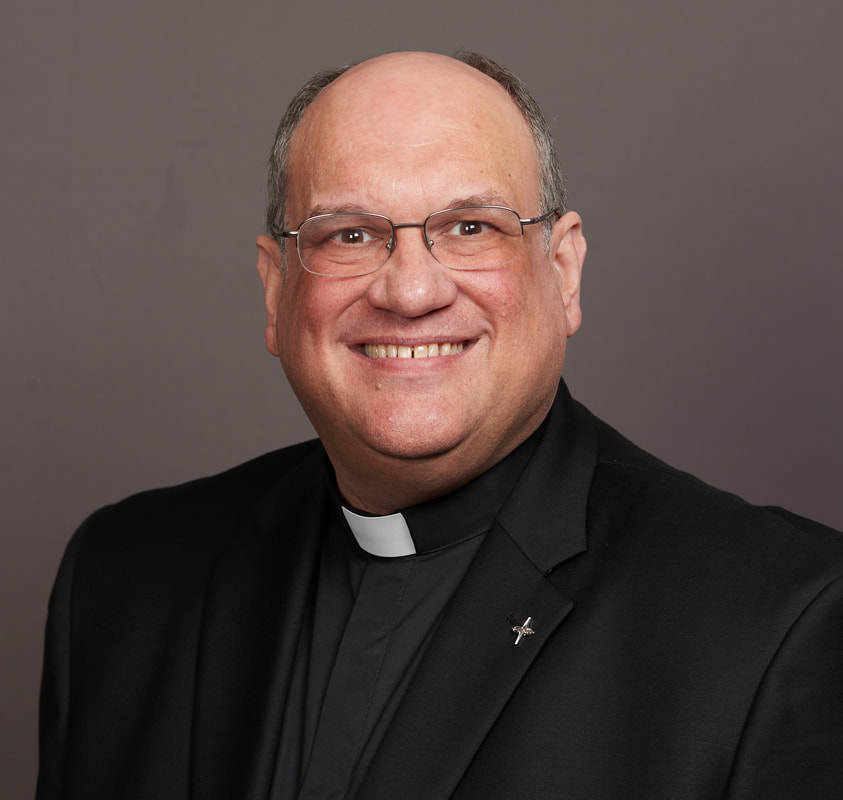
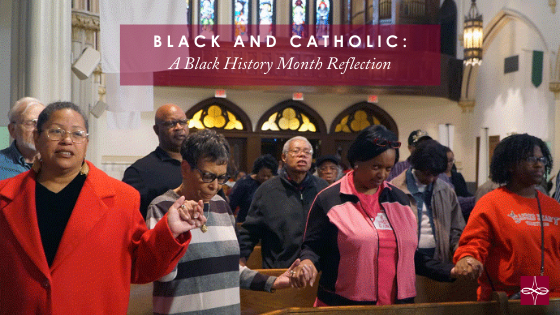
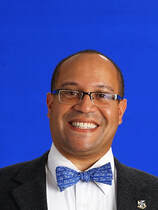
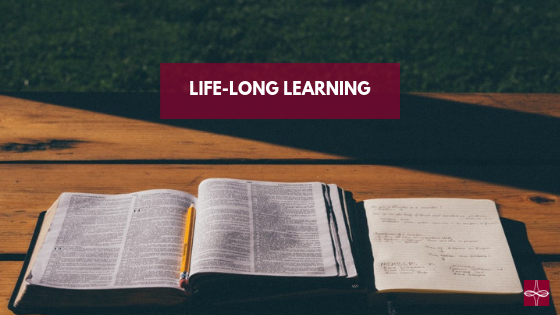

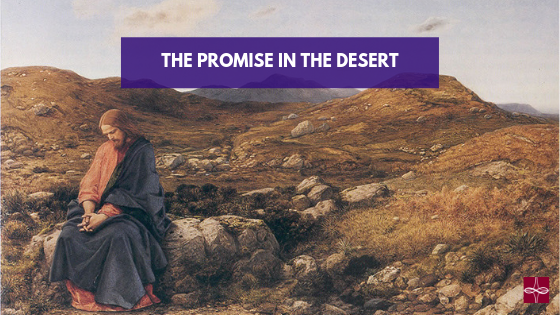

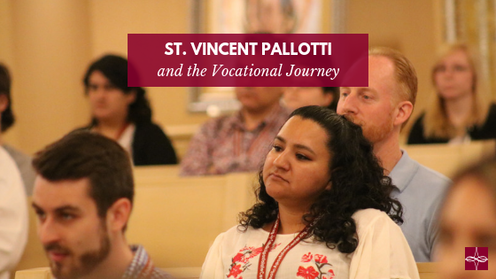

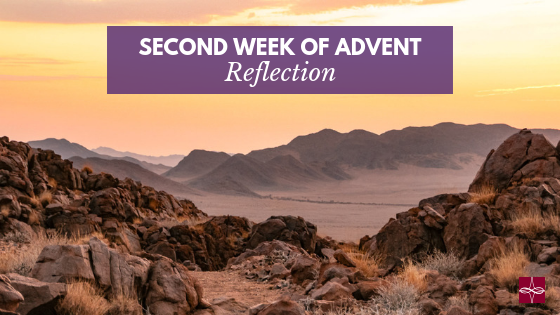
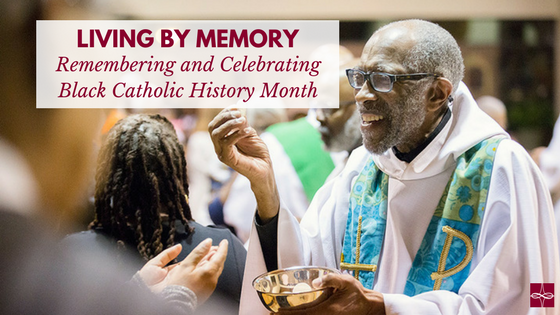

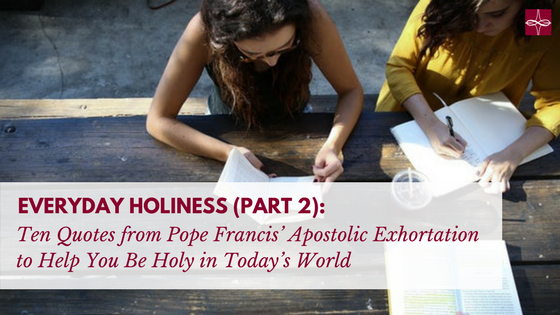

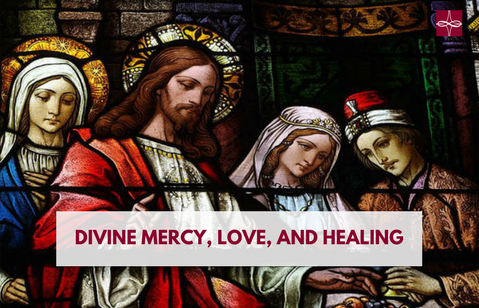



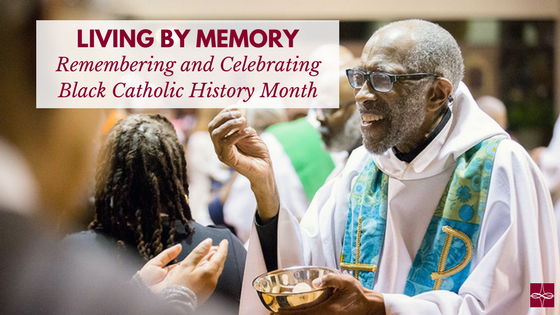
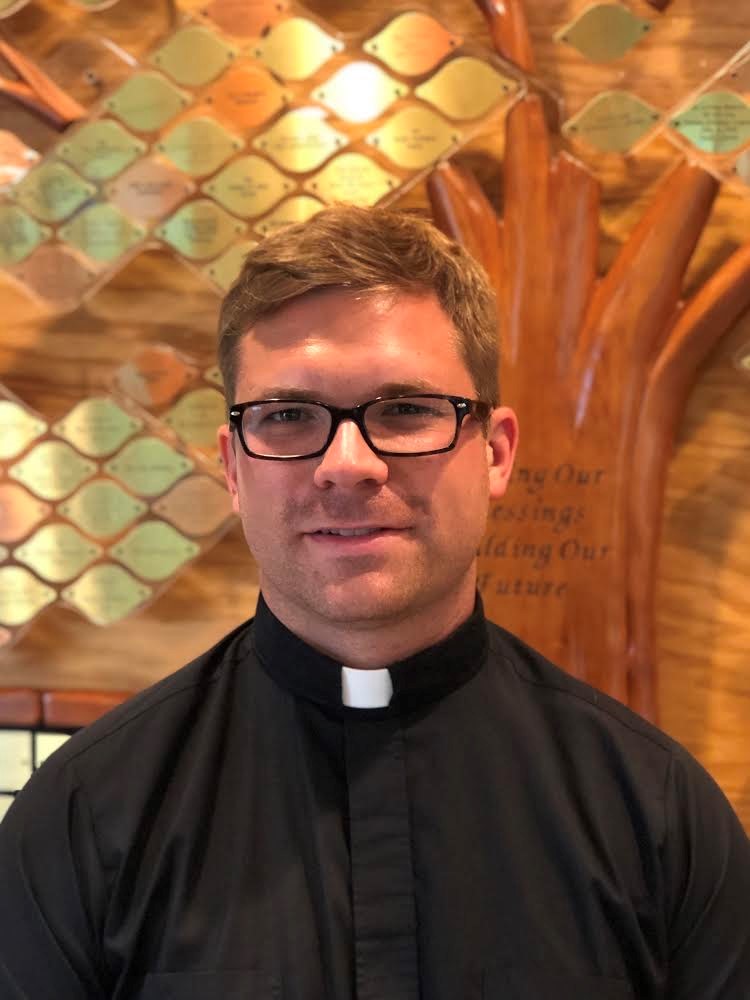
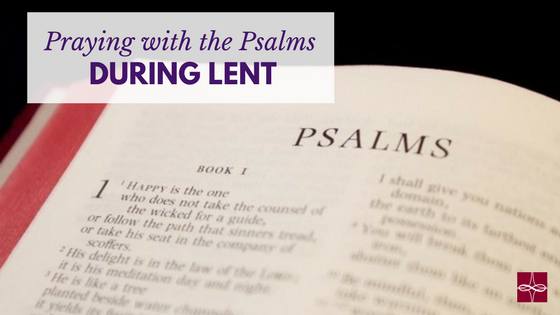

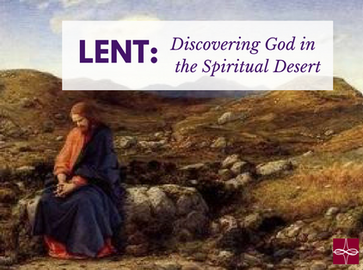

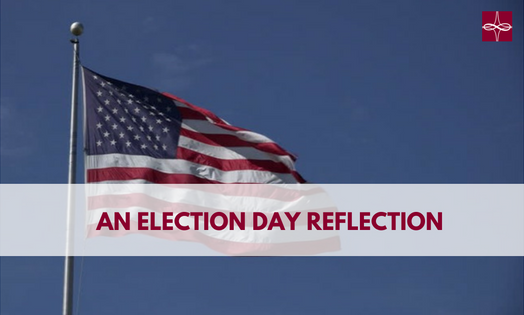

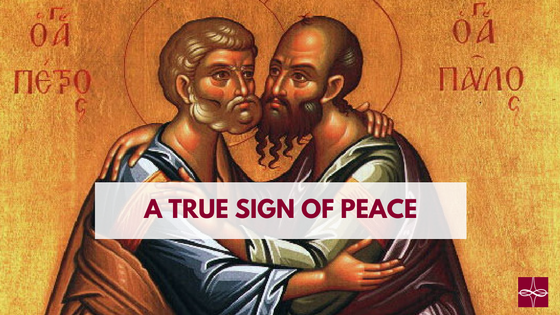

 RSS Feed
RSS Feed